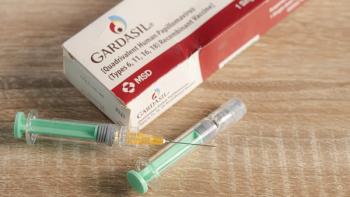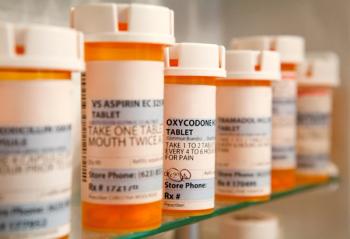
Talquetamab and teclistamab showed significant promise in a phase 1b/2 dose escalation and expansion trial.

Talquetamab and teclistamab showed significant promise in a phase 1b/2 dose escalation and expansion trial.

This abstract will be presented at the Oncology Pharmacists Connect (OPC) meeting in Austin, Texas, from June 19 to 20, 2025.

Nemolizumab shows promising long-term efficacy in reducing itch and skin lesions for atopic dermatitis, enhancing quality of life for patients.

Bispecific therapies require clearer terminology to improve safety and communication.

The subcutaneous infusion is indicated for pediatric patients aged 6 to 17 years who weigh less than 60 kg.


New executive orders and legislation aim to lower prescription drug costs and enhance access to pharmacist services for seniors across the US.

Explore the evolving role of pharmacists in patient care, emphasizing personalized services, community health, and innovative solutions for better health outcomes.

Zahra Mahmoudjafari, PharmD, MBA, BCOP, FHOPA, co-chair of the 2025 Oncology Pharmacists Connect (OPC) meeting, discusses what makes the event unique, highlights key sessions, and shares her excitement for the educational and networking opportunities.

Manish Agrawal, MD, discusses emerging research on psychedelic-assisted therapy for patients with cancer, including innovative dyadic treatment models, challenges in capturing meaningful outcomes, and growing interest in integrating psychedelics into oncology and palliative care.

Moderna's mRNA-1345 vaccine gains FDA approval, enhancing protection against RSV for high-risk adults aged 18 to 59 years, following earlier approvals for older populations.

Ribociclib plus endocrine therapy shows improved survival in HR+, HER2- breast cancer, but its cost-effectiveness raises concerns in the US market.

Amy Duong, PharmD, BCACP, explains pharmacists' critical role in promoting chronic inflammatory demyelinating neuropathy (CIDP) treatment adherence and staying informed about new therapeutic developments.

Vitamin D could offer an alternative option over hard-to-access and burdensome cancer drugs to heighten the response of chemotherapy.

In 3 phase 3 clinical trials, enlicitide decanoate demonstrated clinically significant reductions in low-density lipoprotein cholesterol (LDL-C) in patients with hyperlipidemia and familial hypercholesterolemia.

Pharmacists and pharmacy technicians are key to offering more accessible and efficient care.

Ribociclib in combination with a nonsteroidal aromatase inhibitor (NSAI) improved invasive disease-free survival (iDFS) while allowing for better quality of life in hormone receptor-positive (HR+)/human epidermal growth receptor 2-negative (HER2−) early breast cancer.

Results from a systematic review shed light on the role that obesity and overweight play in increasing the severity of symptoms in long COVID.

The investigational blood test achieved 99% sensitivity and specificity.

The data from the 5-year analysis of arm C validate and support the efficacy and safety of zanubrutinib for treatment-naive patients with CLL/SLL harboring del(17p).

Pharmacists are redefining health care by bridging clinical and economic evidence, making a real difference in patient outcomes through health economics and outcomes research (HEOR).

Pembrolizumab gains FDA approval as a groundbreaking neoadjuvant treatment for resectable locally advanced head and neck squamous cell carcinoma, enhancing patient outcomes.

New research reveals how individual blood glucose responses to carbohydrates vary, highlighting the importance of personalized dietary approaches for diabetes management.

Patients with chronic kidney disease (CKD) and type 2 diabetes receiving both treatments had greater reductions in urinary albumin-to-creatinine ratio.

Mitomycin intravesical solution is the first FDA-approved treatment for low-grade intermediate-risk non–muscle-invasive bladder cancer.

Amy Duong, PharmD, BCACP, highlights pharmacists' essential responsibilities in chronic inflammatory demyelinating polyneuropathy (CIDP) patient care and immunoglobulin therapy management.

Biologics and biosimilars have a major role in modern medicine because of their clinical benefits and economic impact on patient care.

This abstract will be presented at the Oncology Pharmacists Connect (OPC) meeting in Austin, Texas, from June 19 to 20, 2025.

Significant challenges persist, particularly in low- and middle-income countries.

Yes. But that doesn’t tell the whole story.